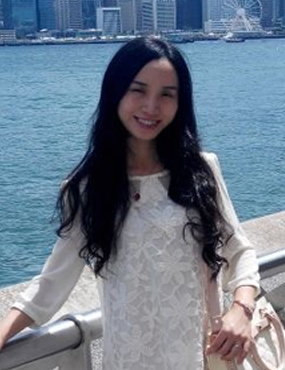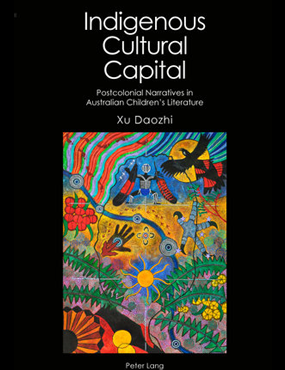A scholar of English literature who began her research in Australian Studies from her native China, Dr Xu Daozhi studies the (rarely explored) relations in literature between Indigenous people and Asian Australians. She recently joined the Department of English as a Macquarie University Research Fellow.
Tell us a bit about your background and what brought you to Macquarie.
I had my PhD in English literary studies from the University of Hong Kong (HKU). I worked as a Research Fellow at the School of International Studies, Sun Yat-sen University and taught Contemporary Literary Theory as an adjunct Assistant Professor at the School of English, HKU, before joining Macquarie University.
I was lucky to be awarded the Australian Studies Program funding from the Foundation for Australian Studies in China (FASIC) for the past three years. The funding supported me to conduct short-term research in Australia, working with A/Prof Hsu-Ming Teo and Prof Bronwyn Carlson at Macquarie University. Hsu-Ming and Bronwyn are superb mentors and supervisors. The valuable research experience paved the way for my successful application for Macquarie University Research Fellowship. It was so fantastic to join Macquarie!
 How did you originally become interested in your area of research, and what keeps you interested in it?
How did you originally become interested in your area of research, and what keeps you interested in it?
As a scholar from China, I am working in the field of Australian Studies. When I was a postgraduate student at the Australian Studies Centre (ASC), Renmin University of China in Beijing, my Master’s Degree thesis focused on Tim Winton’s Breath. That’s how my interest in Australian literature started. The ASC at Renmin is one of the thirty-eight ASCs across China to date. Many people may be surprised to find that there is a very active community of Australian Studies scholars in China.
The diversity in Australian literature keeps intriguing me. My research is particularly interested in Indigenous literature, Asian Australian literature, and children’s literature.
Why is your research important?
My current research focuses on Indigenous and Asian interrelations in contemporary Australian Literature. This research is important because public talk rarely connects Indigenous people with Asian Australians. In fact the two groups have interacted closely with each other from as early as the 17th century and continuing into the 21st century. These relations have been discussed and explored by Indigenous and Asian Australian writers since the 1980s. This significant aspect of Indigenous and Asian Australian literature has been little researched. My project aims to look into the literary history of Indigenous and Asian interrelations and to provide a better understanding of reconciliation, resilience, and agency of different social groups in creating communities and a sense of belonging.
What would people be surprised to know about you or your work?
People may be surprised that as a “double outsider” of Australia’s Indigenous cultures—I am not an Indigenous or settler Australian—I undertook research on Indigenous cultural capital in Australian children’s books during my PhD in Hong Kong.
My monograph Indigenous Cultural Capital: Postcolonial Narratives in Australian Children’s Literature (2018) is based on my PhD research focusing on Australian children’s literature that features Indigenous cultures and histories and are published by Indigenous and non-Indigenous writers in the post-Mabo era. Undertaking this PhD project posed an enormous challenge, intellectually, geographically, personally, and perhaps politically. One problem is—I am not quite an outsider. My book addresses the representation of Indigeneity as a form of cultural capital and its ethical implications in the writing of children’s books. I am conscious of the ambivalence of being a postcolonial researcher, who likewise benefits from the cultural capital that accrues through speaking about Indigeneity, and hence is complicit in the colonial/postcolonial discourse that one intends to critique. Though it is difficult to position myself, same as many scholars in the field of postcolonial studies, I am indebted to Indigenous people and their cultures that my study is informed by and cares about. This sense of indebtedness, as well as the accompanying complexity, have shaped my thoughts when undertaking my PhD and current research.
What's on your agenda for the rest of 2020?
Coming to Australia! I am currently working remotely due to the travel restrictions. For the rest of 2020, I will keep moving forward with my research and also hope to get to know more about the Faculty of Arts and colleagues, even remotely. Hopefully I will be able to come to say hello in person before too long.
Outside of your own, what area of research in the Faculty of Arts inspires or intrigues you?
I think my research may have many overlaps or connections with cross-disciplinary research groups within the Faculty of Arts: for example, “global literature and cultures”, and “markers of authenticity” under the theme of Modes of Communication; “migration, mobility and diversity” under the theme of Social Transformation; and “activism, rights and justice” under the theme of Ethics, Governance and Justice. I am looking forward to exploring more of these and other research themes and streams, and the prospect of future collaboration!